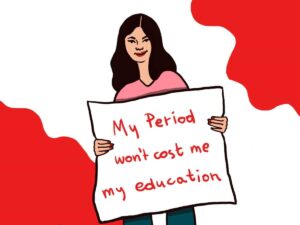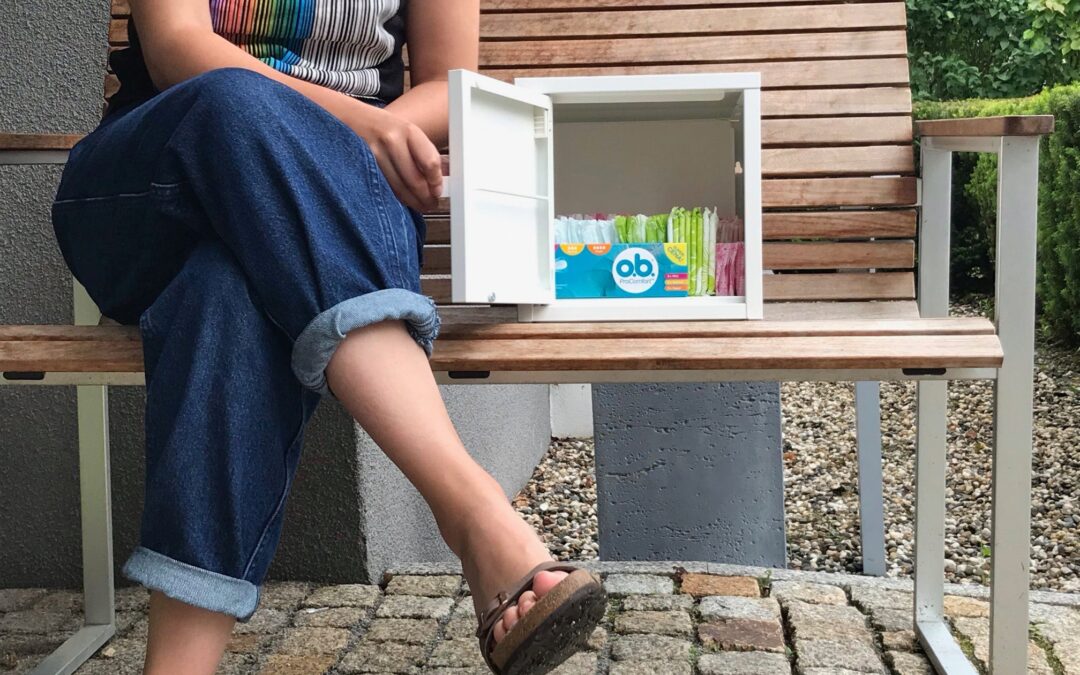Polish charity Menstruation Action has announced a new campaign to tackle period poverty in Poland, after recent surveys revealed that misconceptions about periods, and limited access to sanitary products, are still issues facing women in Polish society.
The “Hey Girls” programme will supply schools with sanitary products as well as offering classes to improve menstrual health. According to a recent study by the Dominika Kulczyk Foundation, 41% of Polish women said menstruation was never discussed in the family home, whilst one in five admitted they have struggled to purchase sanitary pads and tampons.
Menstruation Action will begin their campaign in September, and have been encouraging Polish schools and teachers to sign up through an online application form. So far, 40 schools have agreed to take part.
According to their fundraiser – which has so far raised almost 2,000 zloty of its 10,000 zloty target – the project is intended to “start a period revolution in Polish schools”.
“Our goal is to regularly supply as many facilities as possible with sanitary pads and tampons,” the group explained.
“There will be boxes in schools all over Poland that will be regularly filled with the necessary hygiene products – although we are secretly dreaming that ultimately the students themselves will take care of them, thereby promoting the idea of sisterhood and mutual solidarity.”
Professional classes on menstrual health will also be organised in each school participating in the campaign, to help break down taboos about periods in Poland.
Menstruation Action was founded in 2019 by Emilia Kaczmarek, Magdalena Demczak, Julia Kaffka and Wiktoria Szpunar. The charity’s previous projects have included supporting the purchase of menstrual cups for 1,000 Polish women and girls facing difficulties, such as single mothers, or those in refugee centres or orphanages.
“They were our main beneficiaries, but generally women in Poland who are under the care of the state [such as in prisons or hospitals] do not have permanent access to hygiene products,” Kaczmarek told women’s health site Hello Zdrowie.

Image: Akcja Menstruacja/Facebook
In June, Menstruation Action received a Golden Wolf award from the educational foundation “Exempt from Theory”, with their work celebrated as one of the best social projects in the country. The charity has also campaigned to eradicate period poverty abroad, organising collections to help women in Cameroon and Indonesia to purchase sanitary products.
But Kaczmarek explained to Hello Zdrowia that she feels the issue of period poverty is still ignored at home in Poland. “Our politicians are not taking any action in this direction,” she said. “Many people think that this problem does not exist in our country at all.”
“There are a lot of comments that every woman who menstruates is able to buy a pack of sanitary pads for 2 zloty; that since I use five sanitary pads per day, why should someone else use ten? There is no understanding that every woman is different and has a different physiology.”
In April, the Polish government reduced VAT on sanitary products from 8% to 5%. However, the health ministry recently told journalists from Hello Zdrowia that the government currently has no plans to introduce free sanitary pads and tampons for women in Poland.
This is despite a recent survey carried out by the Dominika Kulczyk Foundation, a family aid organisation, revealing that many Polish women still struggle with limited access to hygiene products, as well as facing stigma about menstruation.
The survey, which was released in May, reported that many women and girls associate periods with weakness and shame, with “menstruation still a cultural taboo” in the country. The responses from the women surveyed showed that many continue to believe misconceptions about periods.
Some 25% said they thought it was impossible to get pregnant during your period, 22% believed you should not go to the dentist during your period, and 21% said you should not bake cakes or pickle cucumbers.
According to the report, period poverty is still a relatively new topic in Polish social discourse, so a lack of access to sanitary products – particularly in schools and prisons – continues to be a problem in society. Almost 40% of poorer women surveyed admitted they had forgone sanitary products in order to spend the money on other items they considered more important or urgent.
Separately, a survey by hygiene product manufacturer Procter & Gamble earlier in the year showed that menstrual poverty continues to be a widespread issue in Polish schools. One in six Polish students revealed they had previously missed a lesson due to lack of access to sanitary pads or tampons.
In March, and with the support of the Polish Red Cross, Procter & Gamble also launched their own campaign, #AkcjaDonacja. For every pack of Always sanitary pads bought in stores, the organisation donated to girls in need.
Yesterday, Menstruation Action also installed the first of their “period help points”, which contain free sanitary products, in Kraków. Over the summer, the charity hopes to install 16 such public cabinets – one for each Polish province – to provide access to free sanitary products for all women in Poland.
“We want it to be a public place, but ensuring privacy for those in need – for example at the headquarters of an organisation or institution,” Kaczmarek told Wysokie Obcasy magazine.
Each period help point will provide a small cabinet with 30 sanitary napkins, 30 tampons, 15 panty-liners and five antibacterial wipes, to be regularly stocked up by a male or female warden. A map showing their locations, along with information on how to leave donations, will be available on the Menstruation Action Facebook page.
Main image credit: Akcja Menstruacja/Facebook

Juliette Bretan is a freelance journalist covering Polish and Eastern European current affairs and culture. Her work has featured on the BBC World Service, and in CityMetric, The Independent, Ozy, New Eastern Europe and Culture.pl.




















